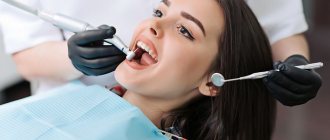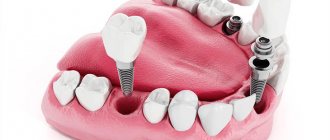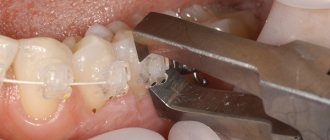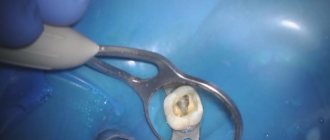Not only small children, but even adults are willing to endure toothache just to avoid going to the doctor. Just remembering the scary tools and manipulations makes your heart skip a beat. Experienced pediatric dentists know how to find an approach to every little patient. And parents definitely need to learn how to prepare their child for the dentist so that the visit to the hospital is successful. This article discusses the main causes of fears: where they come from, how to prevent them, as well as the features of dental treatment in children.
What is this condition and when does it occur?
Dentophobia is the fear of dental treatment.
In such a case, the patient comes to the dentist only in acute situations when the tooth hurts badly. Most often, a child is afraid of the dentist if he has a negative experience with him or the child is simply afraid of doctors and reacts negatively to a white coat. This kind of fear occurs in many children, and it often lasts a lifetime. An adult visits the dentist only when there is severe pain. This condition occurs in a child for the following reasons:
- the child meets the dentist for the first time when he already has severe toothache;
- character traits in which the baby is shy and indecisive, afraid of any unfamiliar situation;
- he was forcibly held down during dental treatment; if adults rudely invaded his personal space, this causes a protest;
- parents do not explain to the child why they need to go to the dentist and have their teeth treated;
- all children react poorly to examination of the oral cavity by a doctor immediately, without prior preparation, this is unexpected for them;
- negativism arises when the baby was once deceived by adults, he was told that it would not hurt, but the procedure was painful.
Fear of doctors in a white coat occurs if the child has been seriously ill in the past. He transfers this experience to all doctors, and can never cease to be afraid of doctors of any specialty.
Basic mistakes
Fear is not born out of nowhere. Every phobia has a root cause. And, no matter how bitter it may be to realize this, it is often the parents who become the creators of fears. Remember, even an accidentally dropped word can make a tremendous impression on a child and influence his life.
Below we look at the most common mistakes that inexperienced mothers and fathers make:
- Going to the dentist even if you have problems. Of course, in such a state (when the tooth aches and hurts), it will be extremely difficult for the baby to trust a stranger. That is why it is necessary to take him for routine examinations - for adaptation.
- Lack of motivation to undergo treatment. From an early age it is important to develop positive health-saving attitudes. If developed in childhood, they will remain forever and will help a person adhere to the principles of a healthy lifestyle.
- Use of violence. Never force your baby to do anything. A quality dialogue and search for compromises are always necessary.
- Well, a convenient time to visit. All visits to the hospital should be arranged at a time that is convenient for the visitor.
Well, the main thing is deception. Do not lie about the absolute painlessness of the procedure if you know in advance that this is not so.
Rules for examining and treating children at the dentist
In order for your child to stop being afraid of dental treatment, it is necessary to follow certain rules and act gradually.
Experienced dentists recommend:
- Parents should bring their daughter or son for preventive examinations. It is better to take them to the same specialist.
- The dentist should not immediately start with treatment; he needs to get to know the child.
- During the first examination, the doctor is not recommended to even wear gloves or pick up dental instruments, so as not to frighten the baby. You can give him a tour of the clinic and give him something.
- The doctor must establish contact with him and tell the baby what happened to his tooth.
- The dentist must explain to him in clear language what he is going to do now. The doctor must be able to persuade children.
- It is necessary to carry out only those manipulations that he agreed on with the baby.
- In good dental clinics they play cartoons or a children's film. The kid, captivated by the plot, is distracted from the procedure. At this time, the dentist does everything necessary to treat his teeth.
- If the baby asks his mother or grandmother to stay with him, he must be allowed to be present in the office. It will be easier to calm him down.
- A good help in developing a positive attitude towards dentists is the personal example of parents. The baby can be taken with you when adults go to the dentist. He realizes that this is a common thing and everyone takes care of their teeth.
- Sometimes it is possible to resort to treating the child under anesthesia. Before this, you need to make sure that the clinic can do it efficiently and there are opportunities to provide emergency assistance if something goes wrong. You must understand that children have age restrictions and this cannot always be done.
If the child understands that the doctor can be trusted, and the dentist does only what he promised, he will be less afraid and will begin to trust him. Next time the treatment will be smoother. The baby will develop a positive attitude towards dental procedures.
Why is a child afraid to have his teeth treated?
When you meet with a dentist, the work of the central nervous system (CNS) changes: a chain reaction starts - the brain converts sound and image into an alarm signal. And then the signal is fixed in memory. When the situation repeats, the body begins to react accordingly even to the kindest dentist - the heartbeat quickens, sweating increases.
It is noteworthy that all children are afraid of pain. However, from the age of three, children develop fear of the sight of blood. Another reason why a child is afraid to have dental treatment is the fear of unfamiliar people and surroundings.
How to form a positive attitude towards treatment in a child
In order not to provoke a negative attitude towards dental procedures and the child begins to have a positive attitude towards treatment, you can take the advice of psychologists.
They give the following advice:
- visit the dentist regularly for preventive examinations, and not just when a tooth hurts, this makes it easier to form a positive attitude in your child towards dental treatment;
- plan a visit to the dentist in the morning, he will be calmer and more relaxed during the appointment, he will have less opportunity to think about the upcoming treatment and worry;
- during the trip, the doctor does not need to discuss upcoming manipulations with the baby; it is better to talk with him about abstract topics;
- carefully choose your attending physician; he should have extensive experience in treating young patients;
- do not show your excitement to the child, he will feel it and also become worried;
- after treatment, you need to praise the baby, say that his teeth will be healthy and strong;
- if there is a need to discuss the procedure, this must be done and the child will speak out;
- play dentist with your baby, treat your teeth with toys;
- watch a cartoon about Aibolit with him and discuss how important it is to treat your teeth on time;
- Do not discuss the treatment of your teeth in front of your child; he must not hear from his parents how painful it is to fill them, pull them out and drill them;
- Do not frighten children with bad behavior with visits to the dentist;
- In case of whims and bad behavior at a doctor’s appointment, there is no need to scold or punish the baby.
These tips will help you overcome your fear of dental procedures.
Children's fears of visiting the dentist and ways to combat them
Everyone knows that children’s teeth need special attention and proper timely treatment. That is why it is necessary to visit the dentist with your child at least twice a year.
Many kids believe that the dentist is the most terrible doctor in the world. Some children, in order not to go to the dental clinic, are ready to cry, hysterical, just to avoid this unpleasant day of their moment. Therefore, for many parents, a visit to this specialist becomes a real test, which can be overcome with a lot of effort. To avoid this, try to prepare your baby in advance for the first visit to the dentist, because even the unknown can frighten children.
What to do if a teenager is afraid to go to the dentist
A teenager trusts adults less, it is impossible to distract him and it is difficult to convince him of anything. You need to establish a trusting relationship with him and show respect for his choice.
It is advisable to follow these tips:
- Be sure to condemn all the procedures that have to be done so that he is not frightened by the unknown. Most fears go away after a detailed discussion of the upcoming situation.
- If a guy or girl refuses treatment and the situation is not urgent, do not insist on visiting a specialist. Familiarize them with the consequences of their refusal in detail and allow them to make a choice. After discussion, the teenager shows interest in treatment himself.
- Create positive motivation in your teenager for dental treatment and careful oral care. Explain to him the importance of healthy teeth and a beautiful smile for his future.
- Until the age of fifteen, you can always be in the dentist's office with your son or daughter and support him. If they are older, then the presence of parents is possible only with their consent.
- Choose a doctor who can establish good contact with the teenager. He must take into account the teenager’s opinion and communicate with him as an adult, and not just listen to the parents’ opinions and fulfill their wishes.
If you cannot cope with the situation on your own and the child continues to be afraid of the dentist, you should contact a psychologist. He will provide him with professional help and help him cope with fear.
How to deal with dental phobia?
If the patient experiences serious fear, he has almost no control over it, and any preliminary attitude, positive thoughts, or determination to visit the dentist is swept away by a wave of panic. It is better to act gradually, breaking the fight against dental phobia into separate stages.
Start with analysis. Once the underlying factor of the phobia has been identified, the fear itself can begin to be assessed. It is better to do this in a calm home environment. Imagine the manipulations that await you in the doctor's office. Rate your fear of each of them on a 5- or 10-point scale. After that, try to figure out what exactly scares you about this or that manipulation. For example, if you are afraid of having your teeth removed, it may be due to a previous painful experience. If your greatest fear is the removal of tartar, then the reason is probably that you are ashamed in front of the doctor for the neglected condition of your teeth. Understanding a specific fear and its cause will help you move on.
Consult your doctor. At this consultation, the doctor doesn’t even have to sit you in the dental chair: he can tell you about the treatment methods, materials used, etc. You can warn the doctor about strong fear and listen to his suggestions. To undergo such a consultation is already a big step forward for a patient with dental phobia.
Schedule an inspection. The next step could be diagnosis: the doctor will examine the teeth and, if necessary, take pictures. Together with him you can discuss the plan for the upcoming treatment. If the fear is still strong, you may not perform any treatment procedures during this visit: give yourself time to get used to it and adapt to the stress.
Start of treatment. It is better to start small: procedures that do not take much time do not require serious intervention. This can be the removal of tartar, professional teeth cleaning, treatment of cervical caries, superficial carious lesions. If everything goes well, you can move on to more complex treatment.
Doctors at the DentoSpas clinic recommend getting a good night's sleep the night before your consultation or appointment. You can take glycine or a mild sedative, but alcohol is unlikely to be a good help. Choose a convenient time - when you are free, feel best, don’t rush anywhere.










